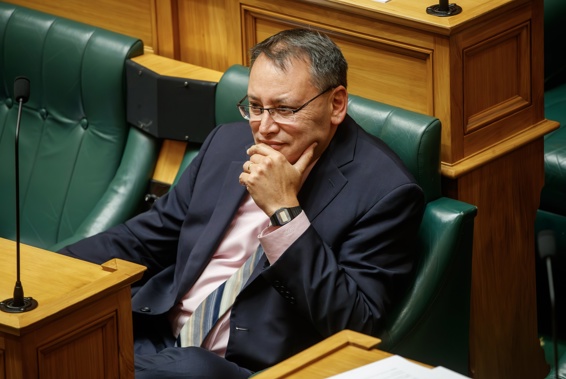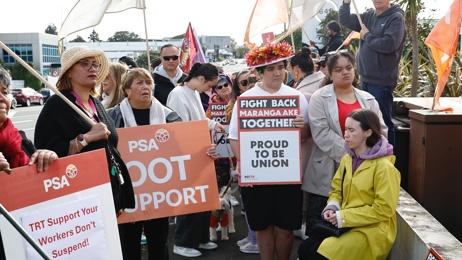
Health Minister Shane Reti says the Government has several measures in place to keep international doctors in their roles, as a study reveals many struggle to adapt to the health sector's work culture.
The threat of the country losing international medical workers has come to the fore through a study released by the University of Otago, which indicates the cultural integration of overseas doctors into New Zealand’s health sector hasn't been good enough.
Talking to Newstalk ZB this morning, the report's lead author Dr Mariska Mannes said the issues among the international workforce were nuanced.
"Just an example - many of them are direct in their communication which isn't readily accepted in New Zealand, so they've had to learn how to soften their communication," she told The Mike Hosking Breakfast.
"Some came from cultures where they had more status as a doctor and they now have to interact in a more patient-centred model where they have to work as a team, [so] you're questioned - whereas that wouldn't have happened before."
Mannes said these obstacles in learning to work differently came on top of the workers’ efforts in studying to qualify as doctors here, and adjustment doesn't come naturally.
"You're an experienced doctor and you bring all that knowledge and now you have to muddle through to try and figure out how things work - that has a huge impact on their identity and for some of them, it becomes too hard, where they thought it would become a great journey ... here in New Zealand."
The offshore-trained doctor workforce currently sits at 60 per cent, according to Accent Recruitment. Many medical professionals will train overseas and New Zealand has been reliant on international doctors for many years.
Health Minister Shane Reti told Newstalk ZB Plus that while the focus needs to be on New Zealand training homegrown doctors and nurses, he was grateful for the international medical graduates and qualified workers.

He said international doctors are a valued part of the workforce and numerous processes were in place to support cultural integration.
Those applying to work in New Zealand as a doctor must pass a clinical exam that covers both clinical and medical knowledge.
Qualification also requires competent responses to questions around an applicant's communication, professionalism and cultural safety. It assesses their level of experience and involves a physical examination as well as their management capacities.
"New Zealand, like other countries, does have its own unique culture, which is why international staff employed by Health NZ are offered a cultural orientation programme when they start that is relevant to their role to help them with their understanding of our culture," Reti told ZB Plus.
"Health NZ takes steps to ensure international staff are supported to integrate and adapt to the working conditions ... This includes appropriate inductions and peer supervision, peer support and performance reviews."
The challenges of cultural integration are well-known throughout the medical fraternity, according to Mannes, who said the country has been reliant on international doctors for decades.
She said attracting them to the country wasn't an issue - but keeping them here was proving more challenging.
"From the research, [we know] when they came here they wanted to be here, but it was more that they felt there was no support in helping them figure out how things work around here, so they were left to it," Mannes told Hosking.
"Most of them talked about if there was support and tools on how they could adjust, it would have made things a lot easier."
Mannes agreed with the view that the biggest challenge was how best to train people to help others while also considering individual staff members’ issues. She said the mentor system was critical in tackling this.
"[You] identify how differences of your culture compare to the New Zealand culture, figure out where the differences are ... then build strategies to overcome those challenges so they feel respected and valued for what they bring here and they stay."
Accent Recruitment founder Prudence Thomson said everybody struggles when they move to a new country and expectations for new recruits need to be set at realistic levels.
"I'm in Singapore at the moment and we've been talking about what it's like coming to a new country - look, we just set the expectation with making sure people are resilient, saying it will be different," she told Hosking this morning.
"Nobody moves to a new country completely blind thinking it'll be the same as their home country."
Asked if New Zealand was a cultural outlier compared to other English-speaking countries, Thomson said it wasn’t and people from across the world loved the idea of moving to Australasia.
"I don't think it's different from any industry outside medical and I think in all countries, medical migrants are resilient and mobile and we just want to smooth the pathway," she said.
[We want to] be respectful and welcome them and support them. It's hard work migrating, it's a roller-coaster."
Take your Radio, Podcasts and Music with you









